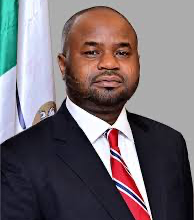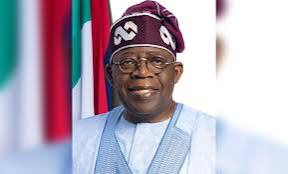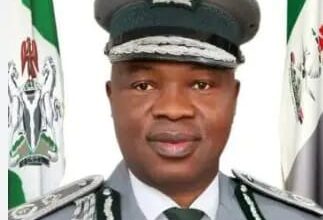How Natural, Demographic Resources Accelerate Growth in Nigeria – OBG Report

With a population of over 218.5m as of July 2022 and home to plentiful natural resources, Nigeria is simultaneously Africa’s largest economy and its most populous country, according to the Oxford Business Group (OBG) reports.
Since its independence in 1960 it has seen significant economic expansion, especially in the years after its transition to democracy in 1999. The current administration is the longest uninterrupted government since 1960, and under its tenure the country has seen economic, political, and cultural gains alongside greater international influence.
Significant challenges remain for the country, however, including achieving inclusive and sustainable growth, improving the livelihoods of the roughly 40% of Nigerians living below the poverty line, harnessing foreign direct investment, resolving unrest and rectifying regional inequalities. Based on improved security measures in the oil sector, in April 2023 the IMF upgraded its GDP growth forecast to 3.2% for that year, up from 3% in its October 2022 projections. Dynamism within the agriculture and services sectors of the economy – most notably ICT and financial services – is expected to provide a backbone for expansion.
Geography
Nigeria covers an area of 923,768 sq km and shares borders with Benin, Cameroon, Niger and Chad. The Niger River – the longest river in West Africa – flows through the country from south-eastern Guinea, entering Nigeria from the north-west. The Niger is joined by its major tributary, the Benue River, at the Lokoja confluence in central Nigeria before flowing into the tropical Niger Delta on the Gulf of Guinea. The delta is a centre for trade and is home to a diverse population and much of Nigeria’s onshore oil reserves.
The capital Abuja was constructed in the 1980s and is the administrative centre of the country, with an estimated population of 3.8m in 2022. Lagos, Nigeria’s richest and most populous city, at 15.4m, was the capital until 1991. Kano is the country’s second-largest city, with an estimated population of 4.2m in 2022. Kano is an economic centre for the more arid northern regions. The tropical southern coast is defined by mountain ranges, rainforests, wetlands and high precipitation, especially towards the east of the country.
Climate
Nigeria is characterised by a tropical climate with significant variety. In general, the western coast and inland Nigeria are drier than the humid eastern coast, which has a tropical monsoon climate. The rest of the country typically experiences a balance of dry and rainy seasons. Average temperatures range from 24°C in winter to 30°C in spring, with the southern parts of the country usually being the hottest and rainiest; the temperatures remain in the low-30°C range most of the year. On average across all Nigerian states, rainfall is heaviest in June and August.
History
Nigeria has been continuously inhabited for more than 100,000 years, and its indigenous culture developed independent from both Middle Eastern and European influence. The region has been home to a variety of kingdoms, ranging from the militaristic Yoruba Oyo empire to the Hausa kingdoms, which included Kano, an important centre for trans-Saharan trade. Islamic influence descended along those trade routes and entrenched itself in the northern part of what later became Nigeria, influencing such historical states as the Kanem Bornu Empire, which ruled the lands around Lake Chad from the 9th to the 19th century.
Christianity arrived on the coast of modern-day Nigeria in the 15th century with Portuguese missionaries. While some indigenous kingdoms’ ruling elites profited from trade with the Europeans, the advent of the transatlantic slave trade contributed to the destabilisation of trading ties and increasing strife between local kingdoms. While the slave trade was abolished by the British Empire in 1807, colonial ambitions resulted in an imperial expansion inland. The timeline of British expansion began with the annexation of Lagos Island in 1861 and the subsequent establishment of the Niger Coast Protectorate, which was later conjoined with the Protectorate of Northern Nigeria to form the Colony and Protectorate of Nigeria in 1914. As Nigerians fought for the British during both World Wars, pressure for greater representation and eventually independence grew, and the country officially proclaimed its independence on October 1, 1960.
Post-independence
Nigeria’s post-independence history is one of forging a consensus between its numerous ethnic groups and achieving a representative and civilian-led government against the backdrop of a powerful military class. Nigeria’s federal roots date back to 1963, when the country was declared a republic under president Nnamdi Azikiwe, an important figure in the struggle for independence.
However, a coup and subsequent countercoup followed in 1966, when general Yakubu Gowon seized control of the country. The secessionist Republic of Biafra was defeated in 1970, followed by the gradual reintegration of the Igbo into the federation. Secessionist tensions led to the division of the three regions dominated by different ethnic groups into different states: the Yoruba in the south-west, the Igbo in the east, and the Hausa and Fulani in the north.
This process reached its conclusion in 1996, when the country was divided into 36 states. The military government dominated politics from 1966 to 1979, with a succession of generals as heads of state, including Yakubu Gowon, ruling from 1966 to 1975, and Olusegun Obasanjo, from 1976 to 1979.
President Obasanjo’s reforms and eventual resignation led to the 1979 constitution and the restoration of civilian rule under Alhaji Shehu Shagari from 1979 to 1983. Shagari was then deposed by the military, which restored junta rule from 1983 to 1993, under Muhammadu Buhari and Ibrahim Babangida, both generals. Upon the latter’s resignation in 1993 Sani Abacha became the new military ruler until his death in 1998. Abacha’s successor, Abdulsalami Abubakar, led a return to civilian rule, with elections held in 1999 and Obasanjo returning to win the presidency. In the years since then, civilian rule has continued under the Fourth Republic, leading to economic development and gains in terms of personal freedoms.
Language & Culture
The ethnic diversity of Nigeria – home to more than 250 ethnic groups – is a defining characteristic. English serves as the official language, though there are over 500 indigenous languages. These include the prevalent Hausa, Yoruba and Igbo languages spoken in the north, south-west and south-east, respectively. Nigeria is home to languages from three African language families, including the Afro-Asiatic, Nilo-Saharan and Niger-Congo groups. The ethnic make-up of the country is dominated by clusters such as the Hausa and Fulani, the largest ethnic group, at 29% of the population; the Yoruba, with 21%; the Igbo, at 18%; and other ethnicities such as Kanuri, Ijaw and Edo.
Religion
Nigeria is also characterised by its religious diversity. While the Hausa and Fulani tend to be more associated with Islam and the Yoruba and Igbo with Christianity, there are many overlaps. A blending of both religions with folk traditions and beliefs is common. The majority of Muslims in Nigeria belong to the Sunni tradition and Catholicism makes up the largest denomination among Christian communities.
Demographics
Nigeria saw a population boom after independence. The country was home to 44.9m people at the time, a number that has since more than quadrupled. The population was 170m in 2012, and the growth rate has picked up speed despite a gradually declining fertility rate – from 6.8 births per woman in 1981 to 5.3 in 2020. Forecasts suggest that the population will increase to 377m by 2050. Nigeria is one of the youngest societies in the world, with a median age of 18.1 years. Indeed, in 2020 around 70% of the country was under 30 years of age and 42% under 15.
Resources
Nigeria is home to numerous natural resources, including the second-largest oil reserves in Africa after Libya, and the highest natural gas reserves on the continent, standing at 206trn cu feet in 2022. Nigeria is Africa’s second-largest oil producer after being overtaken by Angola in April 2022. Oil production has shrunk since 2010 to 1.14m barrels as of September 2022 due to declining onshore production. Despite this, Nigeria is expected to see a number of new oil and gas projects commence operations between 2022 and 2026, which suggests future potential for boosting oil and gas production (see Energy chapter). Aside from fossil fuels, Nigeria also has abundant minerals such as tin, columbite, uranium, gemstones and gold.
Economy
The decade after transitioning to a civilian government in 1999 Nigeria saw significant economic growth, with GDP per capita rising from $496 in 1999 to $2227 in 2008. The years since have been more mixed, however, reflecting global instability and lower oil prices. The economy rebounded in 2021 to reach a GDP growth rate of 3.6%, driven by a recovery in global oil prices and expansion in non-oil sectors such as services and agriculture (see Economy chapter). The challenging global economic environment from 2022 and into 2023 created headwinds for the local economy, including high inflation and depreciation of the naira.
Source: Oxford Business Group Report





